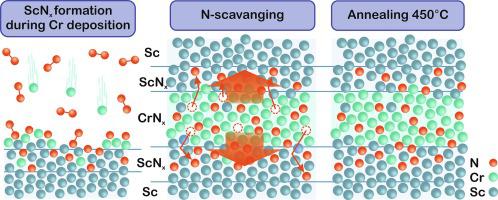应对复杂性:走向气候冲突学术的认识论多元化
IF 3.4
1区 社会学
Q1 INTERNATIONAL RELATIONS
引用次数: 8
摘要
在过去二十年中,气候安全已成为国际论坛上日益突出的政策议程。然而,尽管有大量的研究,气候变化和冲突之间的经验联系仍然高度不确定。本文认为,围绕气候冲突联系的不确定性应该被理解为复杂社会生态系统的特征,而不是一个可以完全解决的问题。与其努力消除不确定性,我们建议研究人员需要学会应对不确定性。为此,本文提出了一套在研究复杂现象时指导学术实践的原则:认识认识论的不确定性,接受认识论的多样性,以及在差异中实践谦逊和对话。综上所述,我们称这种精神为认识论多元主义,学者们自觉地认识到他们所选择的认识论在理解气候冲突关系方面的局限性,并与其他方法进行接触,而不是试图篡夺它们。回顾过去十年的气候冲突研究,我们发现气候冲突研究已经体现了许多这些理想;然而,我们也发现了跨认识论分歧的有问题的参与模式,因此有很大的改进空间。为了说明为什么多种方法(例如定性和定量)是不够的,本文批判性地讨论了先前的研究,以说明为什么至少两种认识论方法——建构主义和实证主义——在没有重大分析成本的情况下无法综合或整合,并阐述了为什么排除任何一种方法的见解都会导致对气候冲突关系的理解贫乏。最后,我们就学者如何在实践中帮助实现认识论多元主义的理想提出了五条实用建议。本文章由计算机程序翻译,如有差异,请以英文原文为准。

Coping with Complexity: Toward Epistemological Pluralism in Climate–Conflict Scholarship
Over the last two decades, climate security has become an increasingly salient policy agenda in international fora. Yet, despite a large body of research, the empirical links between climate-change and conflict remain highly uncertain. This paper contends that uncertainty around climate–conflict links should be understood as characteristic of complex social–ecological systems rather than a problem that can be fully resolved. Rather than striving to eliminate uncertainty, we suggest that researchers need to learn to cope with it. To this end, this article advances a set of principles for guiding scholarly practice when investigating a complex phenomenon: recognizing epistemological uncertainty, embracing epistemological diversity, and practicing humility and dialogue across difference. Taken together we call this ethos epistemological pluralism, whereby scholars self-consciously recognize the limits of their chosen epistemology for understanding the climate–conflict nexus and engage with other approaches without attempting to usurp them. Reviewing the last decade of climate–conflict scholarship, we show that climate–conflict research already manifests many of these ideals; however, we also identify problematic patterns of engagement across epistemological divides and thus plenty of scope for improvement. To illustrate why a diversity of methods (e.g., qualitative and quantitative) will not suffice, the article critically discusses prior research to illustrate why at least two epistemological approaches—constructivism and positivism—cannot be synthesized or integrated without significant analytical cost, and elaborates why excluding insights from any one would lead to an impoverished understanding of the climate–conflict nexus. We conclude with five practical recommendations of how scholars can help realize the ideal of epistemological pluralism in practice.
求助全文
通过发布文献求助,成功后即可免费获取论文全文。
去求助
来源期刊

International Studies Review
Multiple-
CiteScore
6.70
自引率
9.10%
发文量
62
期刊介绍:
The International Studies Review (ISR) provides a window on current trends and research in international studies worldwide. Published four times a year, ISR is intended to help: (a) scholars engage in the kind of dialogue and debate that will shape the field of international studies in the future, (b) graduate and undergraduate students understand major issues in international studies and identify promising opportunities for research, and (c) educators keep up with new ideas and research. To achieve these objectives, ISR includes analytical essays, reviews of new books, and a forum in each issue. Essays integrate scholarship, clarify debates, provide new perspectives on research, identify new directions for the field, and present insights into scholarship in various parts of the world.
 求助内容:
求助内容: 应助结果提醒方式:
应助结果提醒方式:


